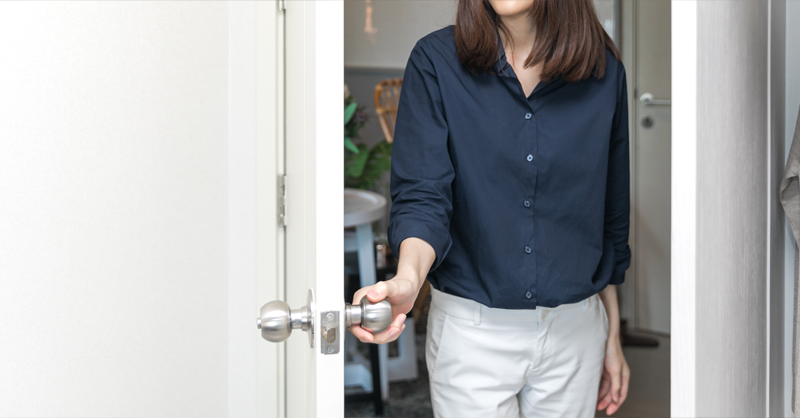
When a rental property is put on the market for sale, tenants may receive permission and entry requests from their property manager/owner to take photos of the property for advertising and to allow prospective buyers to inspect it.
Remember that during a COVID-19 lockdown, any entry into rental properties during a COVID-19 lockdown must be in line with public health directions and advice.
It’s important for property managers/owners to get written permission from the tenant to use photos displaying their possessions in any form of advertising to protect the tenant’s privacy. This applies to the tenant’s possessions inside and outside the home (e.g. personal items, furniture, cars and boats).
If photos displaying a tenant’s possessions have been used without permission, the tenant can issue a Notice to remedy breach to request these photos be removed. Alternatively, they may request the RTA investigates the alleged offence.
Rules on entry: private viewings, repairs and maintenance
The standard entry rules apply for entry on all occasions, whether it is for private viewings, general inspections or repairs and maintenance purposes. A private viewing refers to when the property manager/owner takes a pre-organised group of prospective buyers to view the property at an agreed time and is different to an open house.
When a property manager/owner wants to enter the rental premises, they must provide the minimum notice as required by legislation, the reason for entry and specify a two-hour window when entry will occur. Entry times are limited to between 8am and 6pm Monday to Saturday, or at a time agreed to by the tenant.
Under the legislation, a separate notice must also be given for each entry. This means if the property manager/owner is organising groups of prospective buyers to view the property at different times, a notice must be received for each group.
Unlawful entry is an offence and customers can request an investigation into the occurrence. Read a case study about a Sunshine Coast landlord who was found guilty of unlawful entry.
Rules on entry: open houses
While an open house may seem a little daunting, tenants who agree to have an open house may be able to avoid multiple, pre-organised private viewings and entries on different days. Open house refers to when the property for sale is open for viewing by any and all prospective buyers at a specific advertised timeframe.
If the tenant agrees to an open house in writing, the property manager/owner should negotiate a suitable time. The property manager/owner should try to minimise disruption to the tenant's quiet enjoyment of the property, and they must give the tenant an entry notice providing at least 24 hours’ notice of the open house.
It is also important to note that a reasonable amount of time must have passed before another open house can be held.
The Residential Tenancies Authority (RTA) encourages parties to have conversations about entry and open houses early and keep each other updated on the plans involved as much as possible. Make sure all decisions, arrangements, consent and communications are documented in writing. Keeping lines of communication open will help everyone work together for the best outcome.
For more information and further details on legislative requirements in the sale process, you can watch our Selling a rental property webinar, or tune into our podcast episode on selling a rental property.
Note: While the RTA makes every reasonable effort to ensure that information on this website is accurate at the time of publication, changes in circumstances after publication may impact on the accuracy of material. This disclaimer is in addition to and does not limit the application of the Residential Tenancies Authority website disclaimer.

